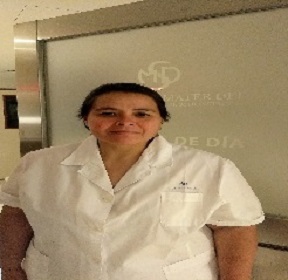Keynote Forum

Title: Emergency medicine
Abstract:
Error in the Intensive Care Unit (ICU) is a well-documented and frequent problem. This is understandable as one looks at the complexities of serious disease along with the number of invasive and potentially harmful procedures that are commonly used there. Until recently, allegations of medical malpractice resulting from suspected mismanagement in the ICU were unusual, but there has been a rise the last years.
It is difficult to determine whether the increase in lawsuits is due to a real increase in adverse incidents or to a shift in media perception. There is no question that the aggressive cover-up by law companies dealing in personal injury lawsuits offering to initiate claims on a contingency fee basis has become more common. The Medical Protection Society is experiencing an increasing number of claims generally, and the value of damages awarded is skyrocketing.
Biography:
Permanent Consultant Anaesthesiologist- Intensivist Company Name:General Hospital Hippokratio of Thessaloniki Dates Employed:May 2017 – Present Employment Duration: 3.7 years Location :Thessaloniki-Greece Anaesthesiologist: 10 years Company Name:General Hospital Hippokratio of Thessaloniki Trainer - examiner in surgical nursing specialties of Northern Greece Medical doctor volunteer (pain management) Company Name Doctors of the World Greece Dates Employed Aug 2016 – Present Employment Duration 4 yrs Member of rapid response emergency team of G.H.T.Hippokratio Αs an anesthesiologist I have experience in Obstretic & Gynecological cases / Liver and Kidney Transplantations / Cases of General’s Surgeries /Vascular Surgeries / Cases of Neurosurgeries and Emergency Medical Technician Roles. In intensive care, I undertake all kinds of pathological, neurosurgical, general surgery, obstetrics-gynecological cases and the postoperative recovery of liver transplants.
Mara Eugenia Catini
ArgentinaTitle: Critical care nursing
Abstract:
Swallowing disorders are frequent in patients with an artificial airway (tracheostomy / orotracheal tube) in Intensive Care Unit (UCI). Dysphagia is associated with poor outcomes such as malnutrition, dehydration, increased risk of aspiration pneumonia, delay in resuming oral intake, prolonged stay in ICU and hospital, increased morbidity and mortality with the consequent increase in costs in health. The role of the respiratory therapist as a member of the multidisciplinary team of the ICU includes respiratory care, physical rehabilitation, and also the evaluation of swallowing. Early detection of swallowing disorders in critically ill patients is important for the decision-making process regarding feeding and oral drug administration. However, no information on this issue has been published in Argentina. Objective: A national survey was carried out in Argentina about the forms of evaluation, diagnosis and treatment of swallowing disorders in patients with critical illness. Results: 566 participants were included. The results showed that swallowing assessment in the ICU is performed by respiratory therapists for 60% of the respondents. Furthermore, although the majority of the surveyed consider that dysphagia occurs frequently and that early detection is very important, half of them do not carry out a protocolized evaluation or a routine therapeutic approach. Graphics In this sense, there is no universally accepted and validated screening and evaluation test for dysphagia in this critically ill patient population. Although currently there have been published recommendations of experts from scientific societies of our country that are useful to us in daily clinical practice Conclusion: we encourage ICU´s work team to develop clinical evaluation protocols that allow early detection of patients at risk of dysphagia, to which we can provide appropriate therapeutic interventions.
Biography:
Maria Eugenia Catini works as a Respiratory Therapist in ICU in Juan A Fernandez Hospital and in Olivos Clinics in Buenos Aires Argentina. She recently has published the first national survey in her country about swallowing disorders in critical ill patients. She wants to show the importance of the role of the physical therapists in the multidisciplinary UCI team.

Medic Goran
NetherlandsTitle: Intensive care units
Biography:
Goran Medic is a Senior Manager for Health Economics and Outcomes Research (HEOR) in Philips. In this role, Goran drives the implementation and execution of health economic strategies and analyses for Philips’ products and services, both marketed and in development. He has over 14 years of global, regional (Europe, Middle East, Canada and US) and local hands-on experience in HEOR, market access and reimbursement. He is self-driven to develop HTA value propositions and data driven solutions to support decision making in access of innovative medical devices to patients. He is making strategic decisions on the launch sequence and HEOR evidence roadmaps of premium-priced medical devices. In his current and past roles, Goran has honed his expertise and skills in proactively identifying payer / HTA relevant evidence requirements to support relative value demonstration and product differentiation. Goran has more than 30 peer-reviewed scientific publications

M Eugenia Teran
ArgentinaTitle: Pediatric critical care
Abstract:
In the Pediatric Critical Care Units (PICUs) the adequate management of sedation and analgesia becomes very important, because it is necessary to keep the child quiet and without pain. Evaluation of pain and sedation must be a common practice. It is essential to know the available drugs, the correct use of doses, their main adverse effects and interactions. It must be remembered that kids have a different idiosyncrasy as well the differentiated management that children require. A rutinary evaluation allows the intensivist, to avoid or diminish, delirium and withdrawal in order to ensure an adequate care. In patients with COVID 19 that require critical care is important to adequate the previous treatment strategies.
Objective: The objective of this paper was to develop practical an evidence base recommendation for the proper management of analgesia and sedation together in pediatric population in general and with COVID 19 that require admission in the PICU
Material and Methodology: we conducted an analysis and bibliographic research using Pubmed and Cochrane database. Using a combination of MeSH terms and keywords (COVID-19; pediatric population; sedation; analgesia; delirium; withdrawal; critical care; drugs interactions).
Conclusion: These recommendations may facilitate the adequate sedation and analgesia in the PICU in pediatric patients in general and with COVID 19
Biography:
Dr. Ma. Eugenia Teran fulfilled her degree at the University of Buenos Aires (UBA), is a specialist in pediatric critical care. Currently works in the PICU of Hospitall de Niños Ricardo Gutierrez in Buenos Aires, Argentina. Is a member of SATI (Argentinian Critical Care Society) and develops her research as a member of the Analgesia Sedation and Delirium committee into SATI and in SLACIP (Latin-American Society of Pediatric Critical Care)

